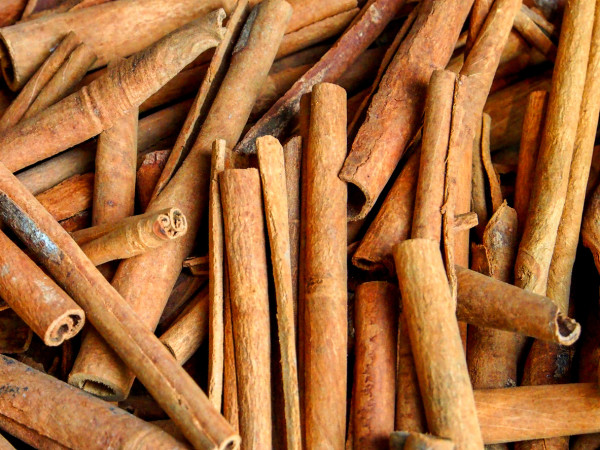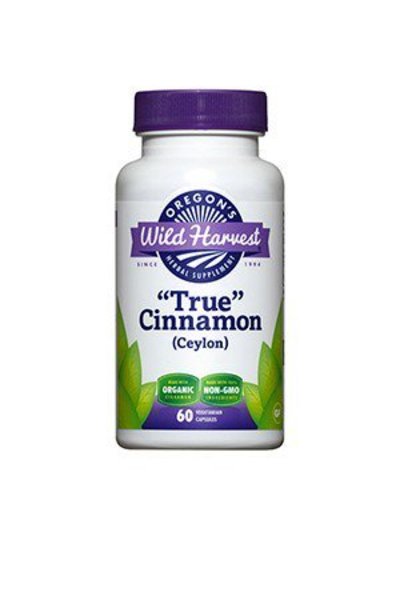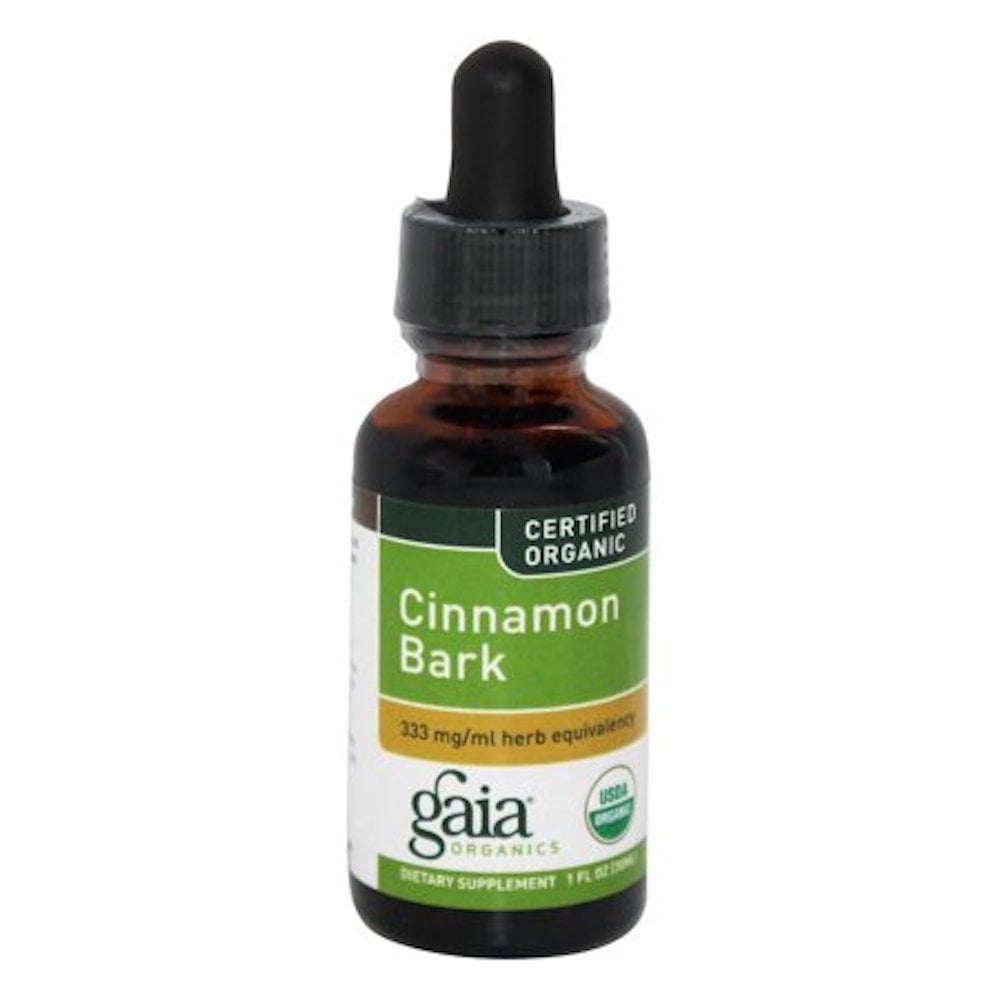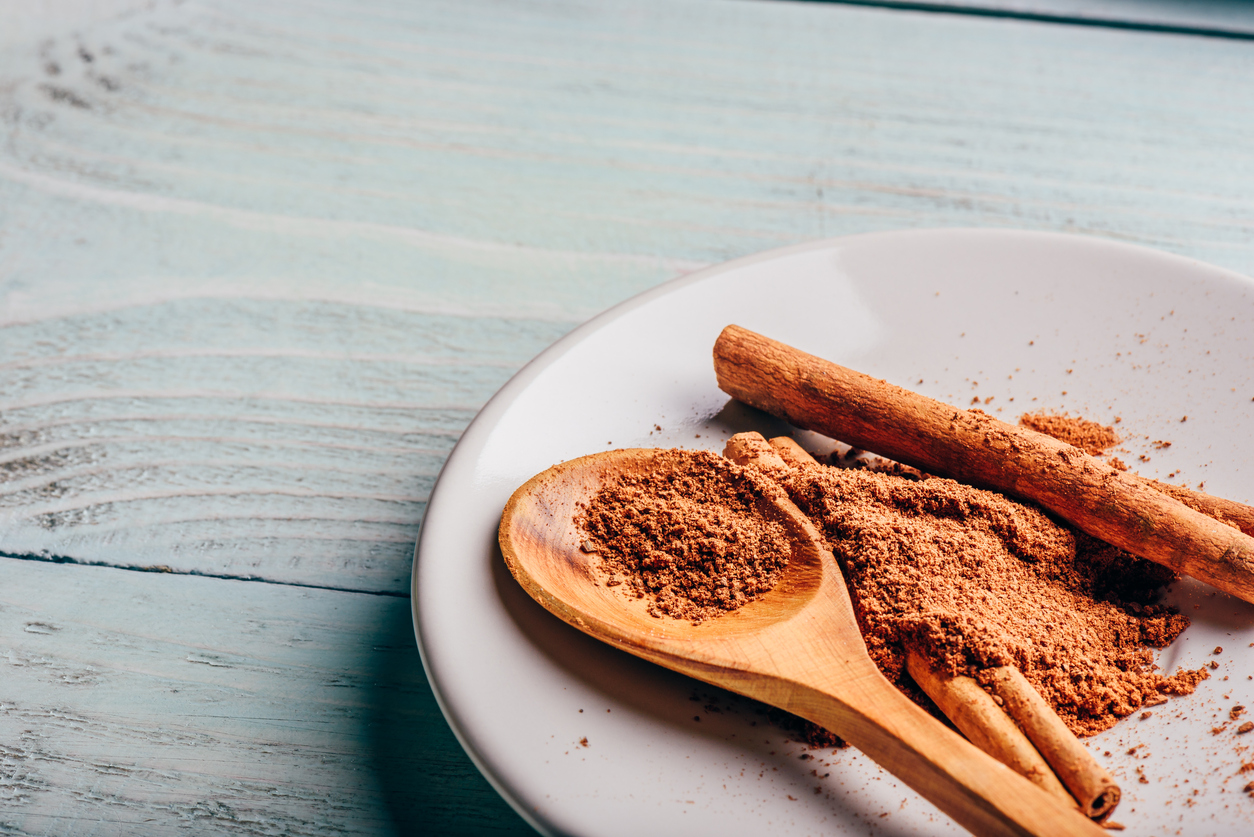Looking for the best cinnamon? Read on to find out which brands we like best. Cinnamon powder is a staple in every American kitchen, from its omnipresence in apple pie and pumpkin-spice-everything to its usefulness in various cuisines like Indian curries or Moroccan tagines. But cinnamon may also be a useful staple in your functional food, medicine cabinet: research points to the possibility that cinnamon can be a useful treatment for everything from type 2 diabetes to the common cold (find out more with our guide to the research on cinnamon, distilled).
Different types of cinnamon come from various cinnamon trees, which are grown in regions like Sri Lanka, Indonesia, and China. The harvesting process and the specific variety of the tree influence the flavor and quality of the cinnamon.
As with anything that you put into your body, however, it’s important to shop smart: there are several types of cinnamon on the market today, some of which can be exposed to pesticides or may not have all of the active components highlighted in medical research. Always choose whole, organic, pure, non-GMO, high-quality Ceylon cinnamon whenever possible, and keep it in a cool, dry place until ready to use.
We’ve done the due diligence to highlight some of our favorite top-rated cinnamon brands in our cinnamon buying guide below, linking to them for your convenience. Purchasing via these affiliate links helps Organic Authority continue to bring you the best information so that you can continue living a healthful lifestyle.
The Latest Research on Cinnamon Benefits
There are so many potential health benefits of cinnamon, including its rich content of antioxidants.. Folkloric allusions to cinnamon’s role as a digestive aid, pain reliever, or cure for the common cold are all undergoing research as we speak, and promising evidence has already been found linking cinnamon to reduced symptoms of type-2 diabetes, reduced inflammation, and more.
Cinnamon contains essential oils, which contribute to its medicinal properties and are used in herbal medicines, drinks, and perfumes.
Registered Dietitian Amy Campbell notes that while cinnamon could certainly be helpful in diabetes treatment, it’s important to check with your doctor and, above all, not to go off of any other diabetes medicine if you add cinnamon to your regimen.
It’s also important to note that many medical studies examine cinnamon in extremely high doses that would be impossible (and could even be dangerous) to ingest at home. Be sure to check with your doctor before adding any supplements to your health regimen and speak with him or her about the appropriate cinnamon dosage for you.
Also note that some studies examine the health benefits of Cassia cinnamon, while others examine the benefits of Ceylon cinnamon. As a rule, it’s generally better to opt for Ceylon cinnamon for maximum potential health benefits: known in some circles as ‘true’ cinnamon, it does not have the high blood-thinning coumarin content of Cassia cinnamon, which you can identify and avoid, as it could be dangerous to your liver in high doses.
For more information on the latest research on cinnamon, check out our guide to cinnamon’s health benefits
Finding Quality Ceylon Cinnamon
Not all cinnamon is created equal, so be careful what you buy. When you are perusing the supermarket shelves, you’ll likely see Cinnamomum cassia sold as Chinese or Cassia cinnamon, whereas Cinnamomum verum will be sold as Ceylon cinnamon. According to our experts, you should opt for the latter due to its superior flavor profile. Ceylon cinnamon is known for its delicate sweetness and subtle spiciness, offering a mild and aromatic profile, while Cassia cinnamon has a stronger, more pungent flavor. These differences in flavor profile can significantly impact the taste of your dishes.
“Nearly all the cinnamon in the grocery stores and health food stores is a cousin of true cinnamon,” explains Christina Major, an MS Holistic Nutritionist and Herbalist and the Health Recovery Expert of Crystal Holistic Health
Cinnamomum cassia, or Chinese cinnamon, has a very similar flavor and color, but it does not have the same health benefits,” she explains. “Only Cinnamomum verum provides the health benefits, and this is an expensive spice that is often illicitly substituted with Cinnamomum cassia.”
If you do have Cassia cinnamon on your shelf already, you can certainly continue using it as a cooking spice, but Farley warns that the Cassia variety should not be consumed in therapeutic doses, due to its high concentration of coumarin, which can cause liver toxicity in high doses.
“Not more than 2 tsp. per day,” she suggests.
In addition to choosing the right variety of cinnamon, you’ll want to find a brand that you can feel good about. Certified organic cinnamon is a great place to start, but you’ll also want to check the origin of your spice. In 2013, the FDA found that 12 percent of spice imports into the U.S. were contaminated with insect parts, while seven percent were contaminated with toxic salmonella bacteria – both instances are twice the rate of other imported foods. A 2017 risk assessment of spices published by the FDA found that between 1985 and 2012, cinnamon had been contaminated with salmonella, bacillus, and staphylococcus bacteria, among others.
Best Cinnamon Products by Type

Below is a comparison of the best cinnamon products available, helping you to choose the right one for your needs. Whether you want to add cinnamon to your diet or to your supplement regime, we’ve got you covered with varieties of cinnamon.
Best Whole Cinnamon Sticks
The whole cinnamon sticks from Frontier co-op are fair trade and certified organic. Produced in Sri Lanka, these cinnamon sticks make the perfect seasoning when simmering long-cooking stews or simply stirring your evening cup of tea. Cinnamon sticks are incredibly versatile and can also be used to flavor dishes such as wet brines, pickling liquids, and even in cocktails by scorching them with a kitchen torch
According to a recent Consumer Labs report, it is “clearly the safest” among tested brands, as it contains minimal amounts of coumarin, and it did not exceed limits for salmonella, lead, cadmium, and arsenic.
Best Ground Cinnamon
For ground cinnamon or cinnamon powder, we love Cinnamon Vogue organic cinnamon. Indonesian cinnamon, known for its mild and gentle flavor, is particularly great cinnamon for baking sweet dishes like cookies and scones. Imported from Sri Lanka, this cinnamon powder is certified organic, packaged in BPA-free pouches, and unlike many other brands is non-irradiated.
The Cancer Prevention Coalition writes that irradiating spices can be used as a technique to “mask filthy conditions” of food processing as well as to increase shelf life, so you can be sure that this cinnamon powder IS full of freshness and cinnamon flavor.
We love the transparency of this brand, as well as the fact that it’s devoted entirely to cinnamon, with products like cinnamon teas, toothpicks, and candles on offer.

Best Cinnamon Supplement
Buying cinnamon supplements can be tricky; many contain fillers, like rice flour, to bulk up a paltry amount of cinnamon, often at a high price. Saigon cinnamon, with its intense flavor and high volatile oil content, is a great choice for recipes like cinnamon rolls, coffee cake, and banana bread. When choosing supplements, then, it’s especially important to be careful: Oregon Wild is a premium company, making super-clean supplements with certified organic cinnamon encased in plant-based capsules. The company even provides a certificate of authenticity to be truly transparent about its product.

Best Cinnamon Tincture
We love products from Gaia Herbs, and this company’s cinnamon tincture is no exception. Mexican cinnamon, known for its soft texture and herbal taste, is a great addition to savory dishes like curries. This certified organic liquid is made with certified organic sugar alcohol and real cinnamon.
It should be noted that according to the Consumer Labs report on cinnamon, this tincture contains more than the recommended daily allowance of coumarin for children.
How Much Cinnamon Should I Eat?
Once you’ve got your hands on some true Ceylon cinnamon, the recommended dosage, according to the U.S. Department of Health, is up to 6 grams daily for 6 weeks or fewer. Personal taste preferences should be considered when determining the amount and type of cinnamon to consume, as different types have varying flavor profiles and intensities.
“I would suggest a week rest after the 6 weeks, before beginning again,” says Farley. “Turmeric can be taken during the rest week since it has similar benefits.”
You can also reduce your cinnamon consumption to 5 days a week without a rest week, says Parehk, though she – and we – urge anyone starting a new supplement regimen to consult with a qualified practitioner first and to be very careful of over-consumption of cinnamon, no matter which variety you have. Overconsumption of cinnamon or even a rapid increase of consumption of cinnamon can have some adverse effects.
One, explains Dizon, is that cinnamon’s anti-bacterial properties do not distinguish between good or bad bacteria in the gut, meaning that you could find yourself facing some cinnamon-related digestive issues. “Incorporate fermented foods to replenish your stomach with good bacteria,” she suggests.
Our experts also warn against incorporating too much cinnamon into your diet if you are pregnant, breastfeeding, or have a heavy menstrual cycle. If any of these things apply to you, please see a medical professional before adding cinnamon to your diet.
How Should I Add Cinnamon to My Diet?
Jane Dizon, a nurse and health and fitness enthusiast behind Health and Fitness, has a few suggestions for how to add cinnamon to your diet. “You could add half to one teaspoon of cinnamon powder to your coffee, or sprinkle some on your fruit platter. It’s also great with baked sweet potatoes, oatmeals and apple cider.” Cinnamon rolls are a popular dish that benefits from the sweet flavor of Ceylon cinnamon.
And cinnamon doesn’t always have to be used alone. “You can mix ginger and cardamom with cinnamon if you have a sluggish digestive system,” explains Baron. Making cinnamon rolls at home can be enhanced by using a full cup of cinnamon and experimenting with different types like Ceylon and Cassia cinnamon.
You don’t even have to eat your cinnamon to take advantage of it. Dizon suggests cinnamon-scented candles to boost brain function, and Baron makes a homemade toothpaste with cinnamon, nutmeg, baking soda and cinnamon oil. She also suggests a cinnamon and oatmeal face mask for acne. The sweet flavor of Ceylon cinnamon is particularly suitable for enhancing the taste of baked goods like cinnamon rolls.
Here are just a few of our favorite recipes for including cinnamon in your diet, showcasing its versatile uses:
What are your favorite ways to eat cinnamon?
The views expressed in this article are intended to spark conversation and highlight alternative studies and is for information purposes only. We are not here to diagnose or treat any health or medical conditions, nor should this be relied upon as a substitute for professional medical advice, diagnosis or treatment, even if it features the advice of health experts, medical practitioners or physicians. When making any lifestyle or health changes, consult your primary care physician. The views expressed in this article are the views of the author and do not necessarily represent the views of Organic Authority, Inc.
Related on Organic Authority 5 Cinnamon Oil Benefits and Uses That Will Totally Change Your Life Sweet Potato Breakfast Bowl with Cinnamon and Apple (Have the Coziest Morning Ever!) 5 Ways to Naturally Balance Blood Sugar (Cue Up the Cinnamon and Plenty of Fat!)
Emily Monaco is a food and culture writer based in Paris. Her work has been featured in the Wall… More about Emily Monaco
cinnamon cinnamon health benefits
Source link

